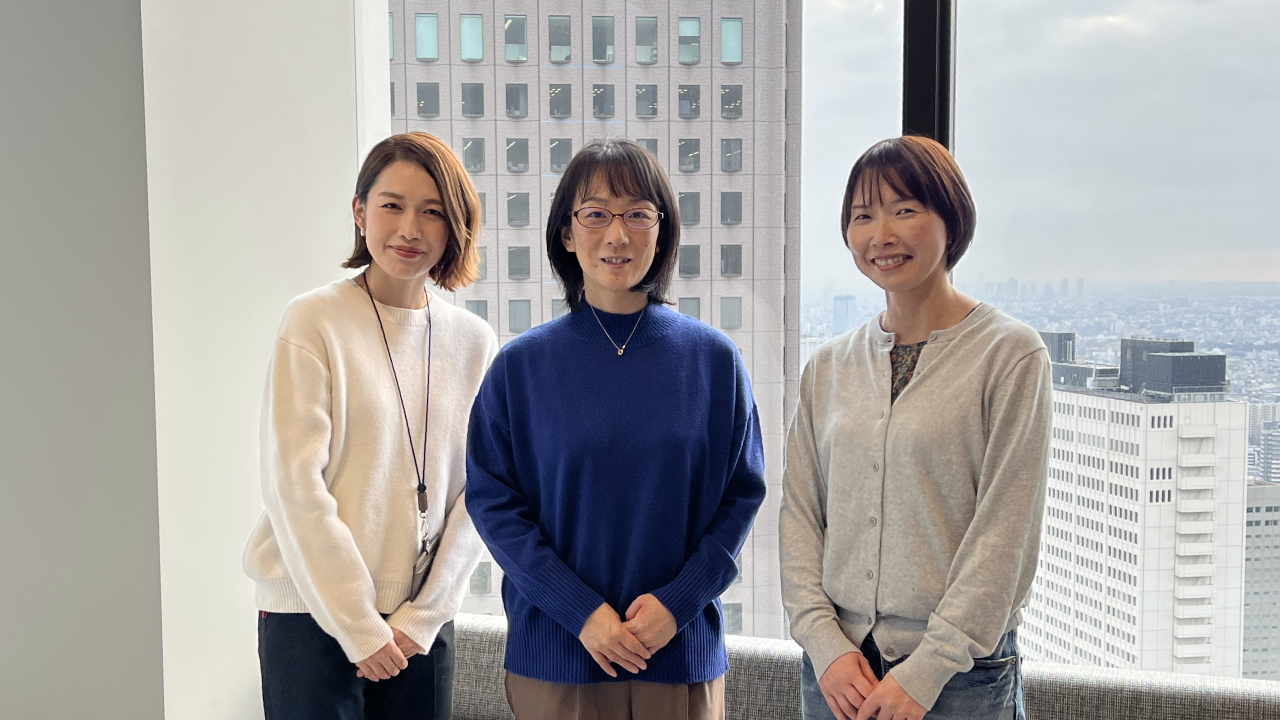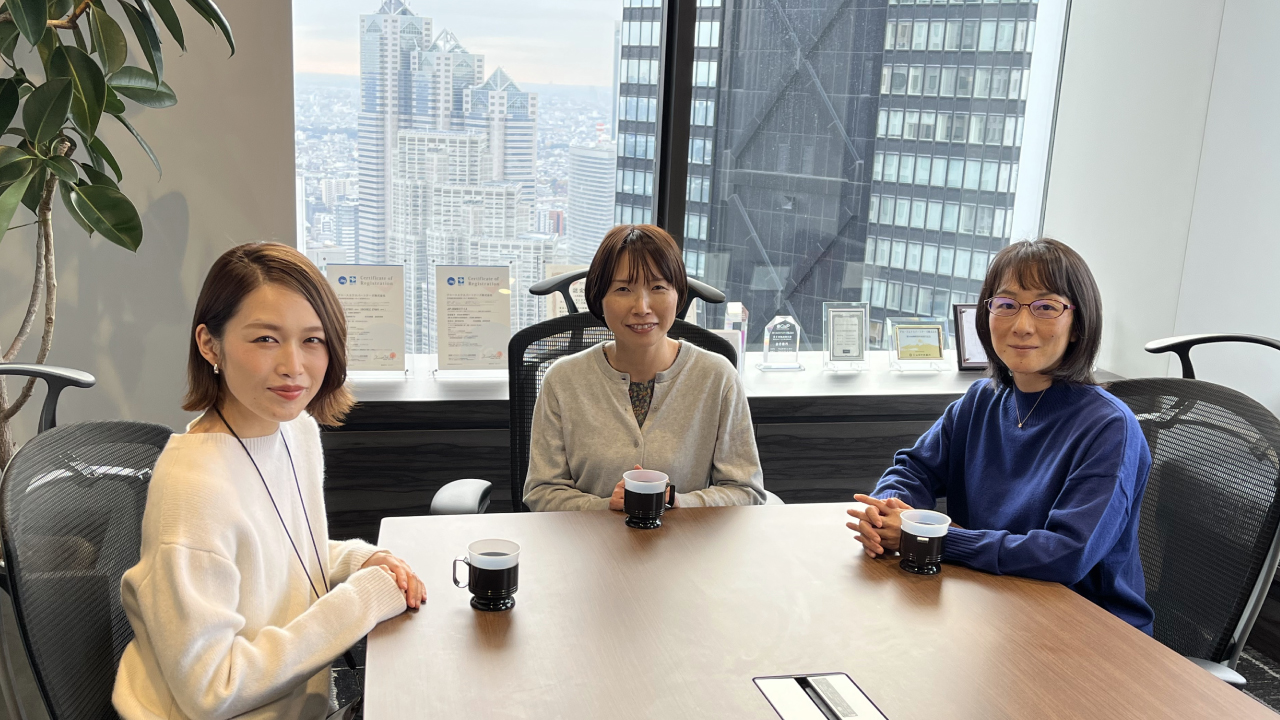
BS2 Department HSU Manager
Accounting Department
Atlassian Product Sales Department

GxP group where women with various life stages, positions and roles play an active role
We asked women who work short hours while raising children to gather and talk about work styles, job satisfaction, and future work styles.
It’s rare to get together with this member. First of all, let’s share each other’s recent situation.
I am in charge of managing medical system development projects.
With a system already in operation, it is a continuous process of trial and error to grow the team and the system while maintaining the balance between new function development and maintenance and the consistency of functions. However, when I received a report that the multiple requests from the customer were well shared within the team and that the system was put into operation at the site, I was relieved that I was able to function as a point of contact for both the team and the customer. I appreciate the hard work of the team.
What is your current job like?
As a technical support representative for Atlassian products, I investigate and respond to inquiries from customers about how to use products and problems.
Responding to a wide variety of inquiries quickly and without mistakes requires carefulness and patience, but I feel a sense of hudge accomplishment when I find a way to reproduce the phenomenon and guide you to a solution. I feel really relieved when I receive a message from a customer regarding the improvement of an incident.
I also challenged the vendor test when I was in charge of support work for the relevant product. I had a hard time because all the materials and exams were in English, but I was relieved that I managed to pass the exam on the first try. After that, I passed two more exams, but now I’m studying for more exams.
Balancing work and qualifications, and studying further is amazing!
As a sales office manager in the accounting department, I provide support around slips and back-up work.
Since there are many urgent requests and irregular responses, we value communication between the person in charge of the project and the accounting department.
Even though I am not directly involved in development, I feel great joy and a sense of accomplishment when the follow-up that I did in advance was useful, or when a long-term project was completed and the customer successfully inspected it.
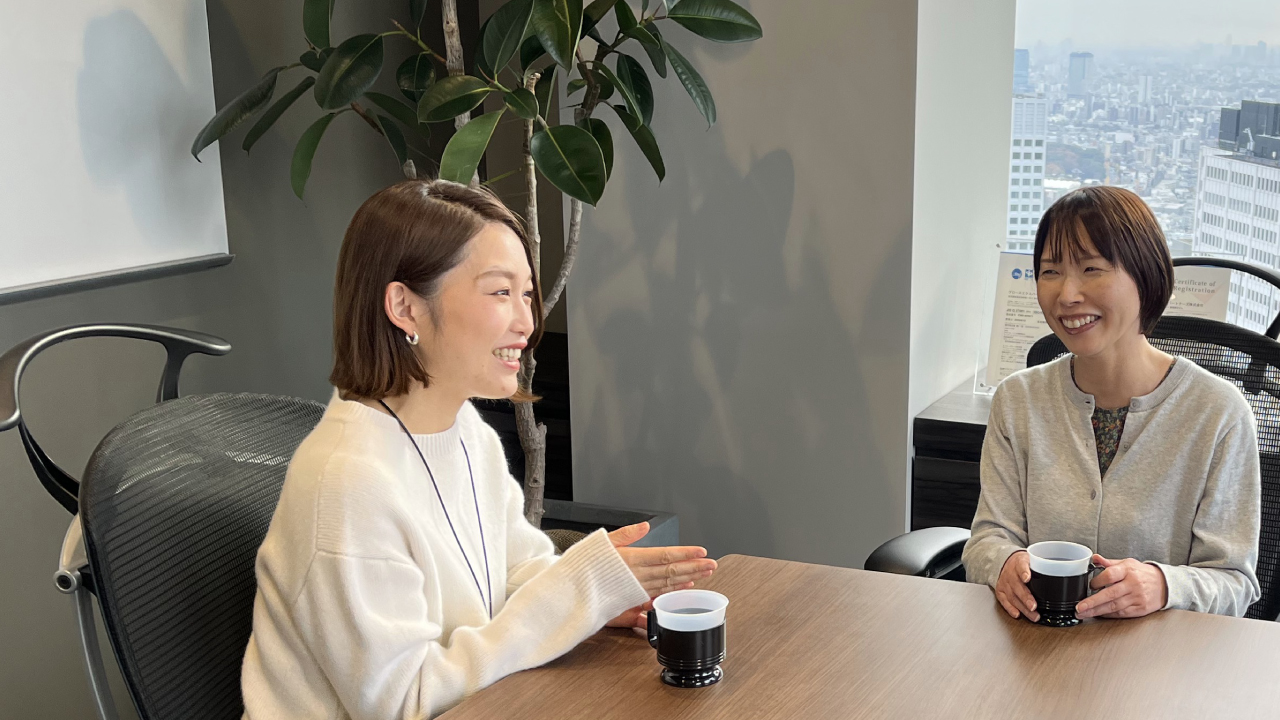
I am happy to have such support from the accounting department.
One thing we all have in common, working in different fields, is that we have chosen to work shorter hours.
It was about 14 years ago that I chose to work shorter hours, and it was triggered by childbirth. The work environment was based on everyone taking care of my health during my pregnancy, and I returned to the same team after giving birth.
When did you start working reduced hours?
I also started working shorter hours after giving birth. A few years after I joined the company, there was a woman in the same department who was about to go on maternity leave, so I had the experience of sending her on maternity leave first. After that, I went on maternity leave, so I experienced both positions, and I think it was an environment that made it easy for me to imagine working after returning to work.
I am a little different from the two of you. I gave birth to my first child while working at a different company, and changed jobs in search of a better working environment. Considering the balance between childcare and work, I had an interview with the assumption that I would work shorter hours.
When I was interviewing for this company, I apologized and asked the interviewer, “Isn’t it the same amount of work as full-time work in name only?” (laughs). The IT industry is busy everywhere, so I don’t think that’s unusual.
But he clearly said, “No, that’s not the case.” I still clearly remember how I was relieved that I could continue working here even if I had children.
Before the reduced working hours, I was involved in general development projects such as implementation, testing, and design.
It is necessary to properly adjust the work load and others while observing the situation, but I am still able to work fulfillingly.
I think everyone has different ways of working during reduced working hours, but when the content or amount of work became difficult, I was able to continue by consulting with my team and superiors and making adjustments.
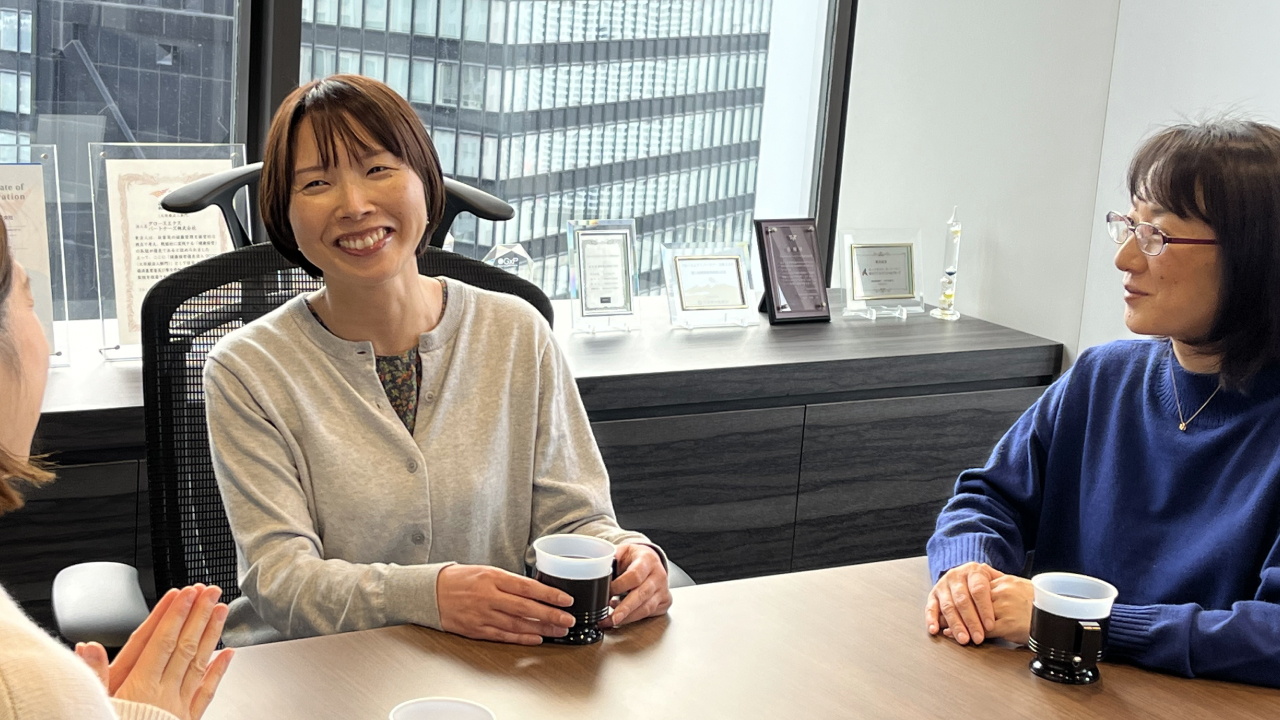
I don’t see any big changes.
When I first returned to work, I was assigned mainly to work that was not urgent and could be prepared in advance.
Since I joined the company, I have been working reduced hours, so I can’t compare before and after, but I also support inquiries from customers and create procedure manuals for internal system settings, and I am able to perform my work with the same responsibilities as full-time workers. I feel that I am being entrusted with it.
There were people working shorter hours on the same team, and even if they weren’t, there were many people who understood the position and situation of people working shorter hours, so I don’t feel particularly uncomfortable.
In the first place, the company has a good atmosphere, so I was able to say without hesitation, “I have to be home by what time.”
When your child is small, you may inevitably be asked to take a day off because your child has a fever. I am grateful that they took it as a very natural thing, such as “Please take care of yourself, tomorrow is also a day off, right?.”
I’m with you. At the interview, I also told him that I might take a sudden break. He didn’t give me a sour look at that time, and I’ve never felt timid since I joined the company.
Compared to before I started working shorter hours, I am more conscious of sharing work assignments and progress with those around me. Since there is also interaction with the client, it is a major premise that you cannot proceed with the work alone. I always send out messages asking people to know what I am doing so that other people can understand the situation.
That’s important. If I don’t think I can finish the work in time, other members will follow up, so I can work with peace of mind.
Looking back, I also changed my way of thinking after taking maternity leave. In the past, I may have misunderstood my sense of responsibility and not often tried to rely on those around me. Therefore, during the busy season, it sometimes took until late at night.
After returning to work in the same department after maternity leave, I finally realized that work can be done without me, and that my colleagues are very reliable. Now, I am adjusting my work style while relying on my team members.
When I was working full-time, I carefully checked each question I received from customers and considered countermeasures. It’s hard, but it’s fun (laughs). But when it comes to working shorter hours, I can’t keep customers waiting because I don’t have enough time. Now, I share information with product vendors early to get information about bugs in advance, and if I have any technical questions, I immediately ask for help from my team members. I always think about what kind of seeds I should sow so that the work can proceed without me.
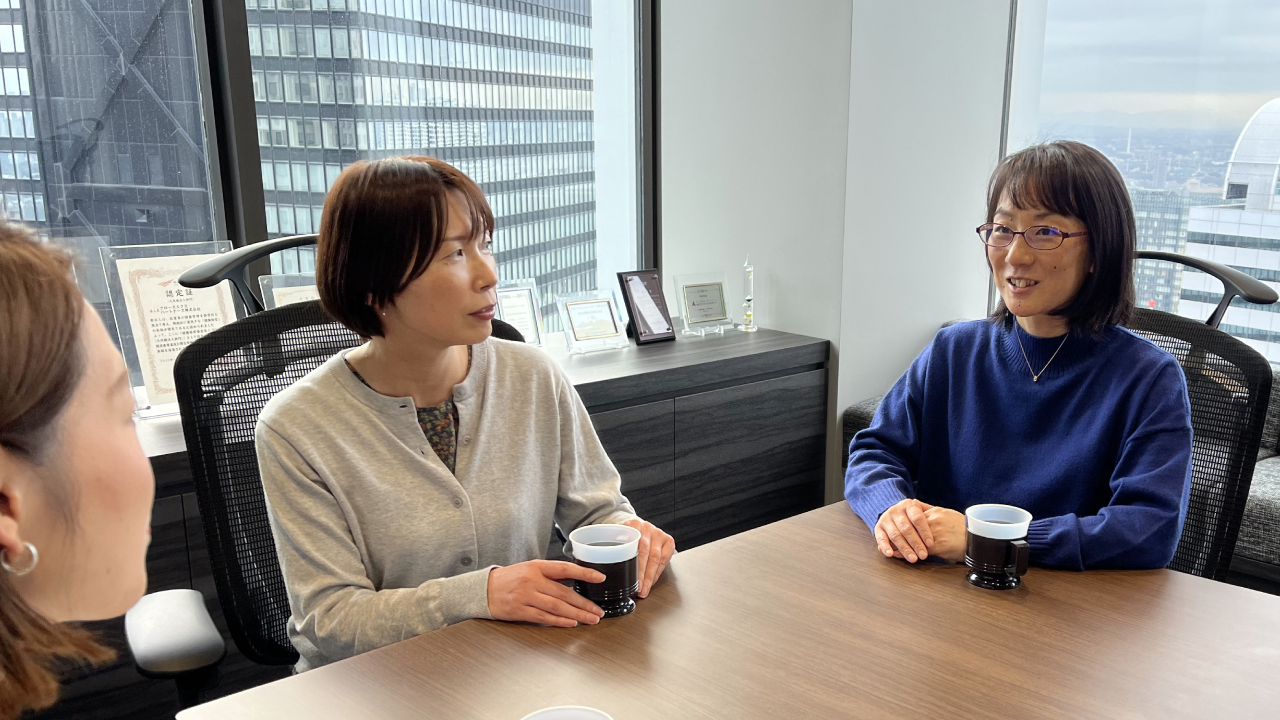
Even before working from home became common due to measures against the new coronavirus, I was allowed to work from home in an emergency. The company was very responsive to such consultations.
After all, it is helpful to be able to work at home and take care of my children when necessary, or to do housework in my spare time.
Working from home has become commonplace, and it’s getting easier to take care of my children.
Now that I’ve become a manager, I want to think more about how to communicate with members and how to work better as a team. In the future, I think that there will be people who want to work shorter hours not only for childcare but also for personal reasons such as nursing care. I would like to continue
I would like to create an environment where people in various life stages, not just those raising children, can work comfortably and with a sense of purpose.
I have a position as a parent to my children, but I also want to value my position as a person who goes out to work in society. I feel that the reason I work is because I want to connect with other worlds without being closed to the role of a motherhood.
There are many interesting people with hidden charms in the GxP group, so I am constantly receiving various influences and stimuli. I would like to continue to connect with society through this company even after I have finished raising my children.
I could have chosen to give priority to childcare and take time off from work, but the speed of the IT industry is so fast that even a month or two can make a big difference. That is why I have worked until now.
Eventually, I chose to work shorter hours, but I felt that my work was rewarding, so much so that I once simulated returning to full-time work. When I return to full-time work in a few years, I would like to work shifts so that I can work in the evenings and on holidays.
I am looking forward to working at this company because there are various people and various ways of working.
